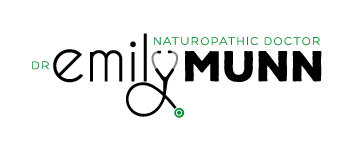Uterine Fibroids.
Fibroids are nonmalignant tumors. They have a high genetic component. Asking to shrink them with nutraceuticals is really a big ask. There is a lot of big talk online about uterine fibroids being your fault, from something you are doing wrong in your diet or lifestyle ie) estrogen dominance, when likely this is not true at all. Most fibroid are found accidentally. We may not need to treat them at all.
Does your uterine fibroid(s) need to be treated?
Questions to ask yourself:
Do you have heavy bleeding?
Do you have painful periods or are you in pain or discomfort because of your fibroid?
Do you have fertility goals? Having uterine fibroids can cause preterm labour.
If you answered yes, then maybe it does.
Conventional treatment options include myomectomy (surgery), ultrasound, uterine endoablation, and hormones. Myomectomy appears to have the greatest treatment longevity. There are some interesting clinical trials on insulin resistance and using metformin to treat uterine fibroids right now as there may be a metabolic risk factor involved in developing uterine fibroids. There is not a lot of evidence on using hormonal IUDs for treating heavy bleeding from uterine fibroids interestingly. There needs to be more research here. The Mirena IUD can help with heavy uterine bleeding but less likely if it is due to uterine fibroids or will do nothing to treat the fibroids.
Studies involving humans include vitamin D and EGCG. Vitamin D deficiency should be treated in patients with uterine fibroids. Low vitamin D levels are a risk factor of having uterine fibroids. Testing and treating vitamin D deficiency is probably the most helpful test and treatment option as studies show reduction in size, progress and stabilization of growth. ECGC from green tea in combination with vitamin D also showed reduction in size when in capsule form in higher doses. EGCG in high dose can cause liver toxicity so caution needs to be considered here. More EGCG may not be a good or safe thing.
Ginger root might be helpful especially if you have heavy bleeding, but ginger root doesn’t really treat the fibroids themselves as ginger root is anti-inflammatory and helps slow heavy bleeding. Ginger is also helpful for painful periods.
Estrogen and fibroids are related more from the insulin dysfunction pathways versus blaming estrogen itself. Fibroid cells are more sensitive to estrogen but this is more likely in obese patients or patients with insulin resistance. This is where metformin or berberine may be helpful as these agents treat insulin and blood sugar dysregulation. Indole-3-carbinol (I3C) or Diindolylmethane (DIM) may be helpful in estrogen detoxification support , but is less likely to resolve uterine fibroids overall.

